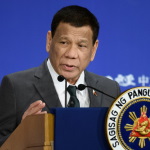Philippines Supreme Court Blocks High Taxes on Gambling Operators

Due to stringent new regulations, a number of Chinese online casinos have been leaving the Philippines. Now the country’s Supreme Court has moved to block higher taxes on the online gambling industry.
The court has issued a temporary restraining order to stop the collection of increased taxes on Philippine offshore gaming operators (POGOs) through the Bayanihan to Recover as One law (also known as Bayanihan 2).

The law was brought in by President Rodrigo Duterte to try to lessen the recession caused by the coronavirus pandemic. Included in the law is a 5% franchise tax on total bets collected by POGOs rather than on their net income.
However, in good news for operators, the court has stopped the enforcement of Section 11 of the law, which includes “amounts derived from the five percent (5%) franchise tax on the gross bets or turnovers or the agreed pre-determined minimum monthly revenues from gaming operations, whichever is higher, earned by offshore gaming licensees, including gaming operators, gaming agents, service providers, and gaming support providers.”
A number of operators, such as Golden Dragon Empire, Riesling Capital Limited, and Oriental Game Limited, challenged the law in court. They claimed that the requirements are "Patent violations of substantive due process and equal protection of the law, and are oppressive and offensive not only to the petitioners, but also to other foreign corporations who are subject to their provisions.”
It was thought that the provision would bring P17.5 billion in additional revenues. However, the court ruled that the provision was a ‘rider’, which means it was a subject matter not expressed by the title of the law, which is necessary according to the country’s Constitution.
As noted, a number of POGOs have already left the country due to the pandemic and the government’s restrictions. There has been a clampdown on POGOs by agencies such as the Department of Finance and the Bureau of Internal Revenue for allegedly not paying taxes totaling more than P20 billion. Furthermore, there have been claims that the industry has links to human trafficking and prostitution.
Despite this, the Philippine Amusement and Gaming Corporation, the industry’s regulator, has been fighting hard for POGOs to resume operations during the pandemic.
More Regulation News
RELATED TOPICS: Regulation
Most Read
Must Read
 Interviews
Interviews







Review this New Post
Leave a Comment
User Comments
Comments for Philippines Supreme Court Blocks High Taxes on Gambling Operators